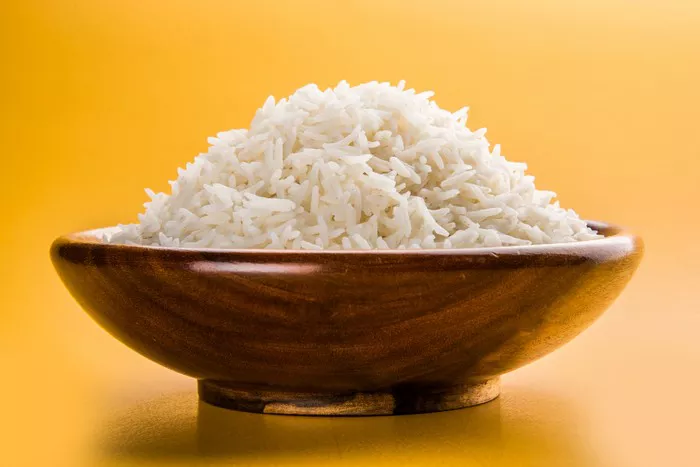Explanation of Hypoglycemia
Hypoglycemia, commonly referred to as low blood sugar, is a condition where blood glucose levels fall below the normal range. Blood sugar, or glucose, is the primary source of energy for the body’s cells, and maintaining an adequate level is crucial for overall health and proper body function. Hypoglycemia is typically defined as blood glucose levels falling below 70 mg/dL, though this threshold can vary slightly depending on individual health factors and specific medical guidelines.
Symptoms of Hypoglycemia
The symptoms of hypoglycemia can range from mild to severe and may include:
- Shakiness or trembling
- Sweating
- Hunger
- Dizziness or lightheadedness
- Confusion or difficulty concentrating
- Weakness or fatigue
- Irritability or mood swings
- Rapid or irregular heartbeat
- Blurred vision
- Headaches
In severe cases, hypoglycemia can lead to more critical symptoms such as seizures, loss of consciousness, and even coma. Recognizing these symptoms early is vital to prevent serious complications.
How Hypoglycemia Can Affect Daily Life
Living with hypoglycemia can significantly impact daily life. Individuals must be vigilant about their blood sugar levels, often requiring frequent monitoring throughout the day. They may need to carry snacks or glucose tablets to quickly address sudden drops in blood sugar. Hypoglycemia can interfere with daily activities, work, and social interactions due to the need for constant vigilance and the potential for unexpected episodes. Managing hypoglycemia also requires careful planning of meals and snacks to ensure consistent and adequate carbohydrate intake, which can be challenging and time-consuming.
Basics of the Keto Diet
The ketogenic (keto) diet is a high-fat, low-carbohydrate diet that has gained popularity for its potential benefits in weight loss, improved metabolic health, and management of certain medical conditions. The primary goal of the keto diet is to shift the body’s metabolism from relying on carbohydrates (glucose) for energy to utilizing fats (ketones).
Main Principles of the Keto Diet
Low Carbohydrate Intake: The keto diet typically restricts carbohydrate intake to about 20-50 grams per day, forcing the body to deplete its glycogen stores and enter a state of ketosis.
High Fat Consumption: To compensate for the reduced carbohydrate intake, the diet emphasizes high fat consumption, typically making up 70-80% of total daily calories.
Moderate Protein Intake: Protein intake is moderate, usually around 15-20% of daily calories, to support muscle maintenance and other bodily functions without significantly affecting ketosis.
How the Keto Diet Alters the Body’s Metabolism
By drastically reducing carbohydrate intake, the body transitions from using glucose as its primary energy source to burning fat for fuel. This metabolic shift leads to the production of ketones, which are molecules produced by the liver from fatty acids. Ketones provide an alternative energy source for the brain and other tissues, allowing the body to sustain energy levels without relying on carbohydrates.
Impact of the Keto Diet on Blood Sugar Levels
The keto diet can significantly impact blood sugar levels, which is particularly relevant for individuals with hypoglycemia. By reducing carbohydrate intake, the keto diet minimizes the spikes and crashes in blood glucose levels that can occur with high-carb meals. This can lead to more stable blood sugar levels over time, which is beneficial for overall metabolic health.
Hypoglycemia Considerations
For individuals with hypoglycemia, the keto diet presents both potential benefits and risks. On the one hand, the stabilization of blood sugar levels may help reduce the frequency and severity of hypoglycemic episodes. On the other hand, the transition to ketosis can initially exacerbate low blood sugar symptoms as the body adapts to the new metabolic state. Careful monitoring and adjustments are crucial during this period.
Potential Benefits of the Keto Diet for Those with Hypoglycemia
Improved Blood Sugar Stability
One of the primary potential benefits of the keto diet for individuals with hypoglycemia is the improvement in blood sugar stability. By maintaining a consistent intake of low-glycemic foods and avoiding high-carb, high-sugar items, the keto diet helps to prevent the rapid fluctuations in blood sugar that can trigger hypoglycemic episodes. This stability can lead to fewer episodes of low blood sugar and a more balanced energy level throughout the day.
Reduced Need for Frequent Eating
Because the keto diet relies on fats and proteins, which are more satiating than carbohydrates, individuals may find they need to eat less frequently to maintain stable blood sugar levels. This can be particularly beneficial for those with hypoglycemia, as it reduces the need for constant snacking and the associated planning and stress.
Enhanced Fat Utilization
The keto diet enhances the body’s ability to utilize fat for energy, which can provide a more reliable and sustained energy source compared to carbohydrates. This metabolic flexibility can be advantageous for those with hypoglycemia, as it reduces dependency on frequent carbohydrate intake to maintain energy levels.
Risks and Considerations
Exacerbation of Low Blood Sugar Episodes
One of the significant risks associated with the keto diet for individuals with hypoglycemia is the potential for exacerbating low blood sugar episodes, particularly during the initial phase of the diet. As the body adjusts to reduced carbohydrate intake and enters ketosis, blood sugar levels can drop, leading to increased risk of hypoglycemic episodes. This adaptation period, often referred to as the “keto flu,” can be challenging and requires careful management.
Nutrient Deficiencies
The restrictive nature of the keto diet can lead to potential nutrient deficiencies if not carefully planned. Individuals with hypoglycemia must ensure they are getting adequate vitamins, minerals, and fiber, which are typically found in higher-carbohydrate foods. Supplements or carefully selected low-carb vegetables and other nutrient-dense foods may be necessary to meet these needs.
Dehydration and Electrolyte Imbalance
The keto diet can cause increased water loss and changes in electrolyte balance, which can exacerbate symptoms of hypoglycemia. Proper hydration and supplementation with electrolytes (sodium, potassium, magnesium) are essential to prevent dehydration and maintain overall health.
Expert Opinions
Healthcare Professionals on the Keto Diet and Hypoglycemia Management
Healthcare professionals and nutritionists have varying opinions on the suitability of the keto diet for individuals with hypoglycemia. Some experts suggest that the diet’s potential to stabilize blood sugar levels can be beneficial, while others caution against the risks of exacerbating hypoglycemia, especially during the initial transition period.
Dr. Sarah Hallberg, a prominent advocate of low-carbohydrate diets, suggests that the keto diet can be beneficial for blood sugar management when implemented carefully. She emphasizes the importance of close monitoring and individualized adjustments to ensure safety and effectiveness.
Conversely, Dr. Caroline Apovian, a nutrition and weight management expert, advises caution for individuals with hypoglycemia considering the keto diet. She highlights the potential risks of nutrient deficiencies and the need for medical supervision to prevent adverse effects.
Personal Experiences
Anecdotal Evidence and Case Studies
Many individuals with hypoglycemia have shared their experiences with the keto diet, highlighting both positive outcomes and challenges. For example, John, a 45-year-old with reactive hypoglycemia, reported significant improvements in his blood sugar stability after adopting a keto diet. He noted fewer episodes of low blood sugar and more consistent energy levels throughout the day. However, he also experienced initial difficulties during the adaptation phase, requiring careful monitoring and adjustments to his diet.
In another case, Lisa, a 30-year-old with chronic hypoglycemia, attempted the keto diet but found it challenging to maintain stable blood sugar levels. Despite following the diet meticulously, she experienced frequent hypoglycemic episodes and ultimately decided to revert to a balanced diet with moderate carbohydrate intake.
These personal experiences underscore the variability in individual responses to the keto diet and the importance of personalized approaches to managing hypoglycemia.
Dietary Recommendations
Implementing the Keto Diet Safely with Hypoglycemia
For individuals with hypoglycemia considering the keto diet, careful planning and monitoring are essential to ensure safety and effectiveness. Here are some recommendations:
Start Gradually: Transition to the keto diet gradually to allow the body to adapt and minimize the risk of hypoglycemic episodes.
Monitor Blood Sugar Levels: Frequent monitoring of blood sugar levels is crucial, especially during the initial phase. Use a continuous glucose monitor (CGM) if possible for real-time feedback.
Maintain Hydration and Electrolytes: Ensure adequate hydration and supplement with electrolytes to prevent dehydration and balance blood sugar levels.
Focus on Nutrient-Dense Foods: Prioritize low-carb, nutrient-dense foods such as leafy greens, non-starchy vegetables, and healthy fats to meet nutritional needs.
Include Small, Frequent Meals: Initially, consider having smaller, more frequent meals to maintain stable blood sugar levels as the body adapts to ketosis.
Work with a Healthcare Provider: Collaborate with a healthcare provider or nutritionist to tailor the keto diet to individual needs and ensure proper management of hypoglycemia.
Medical Supervision
Importance of Consulting Healthcare Providers
Before making significant dietary changes, particularly for individuals with underlying health conditions like hypoglycemia, consulting with healthcare providers is essential. A doctor or nutritionist can provide personalized advice, monitor progress, and make necessary adjustments to ensure safety and effectiveness. Medical supervision is critical to prevent potential complications and optimize the benefits of the keto diet.
Alternative Dietary Approaches for Managing Hypoglycemia
For those who may find the keto diet unsuitable or challenging, several alternative dietary approaches can help manage hypoglycemia effectively:
Balanced Diet with Moderate Carbohydrates: A balanced diet that includes moderate amounts of healthy carbohydrates (whole grains, fruits, vegetables) can help maintain stable blood sugar levels without the restrictive nature of the keto diet.
Low Glycemic Index Diet: Focusing on low glycemic index (GI) foods that release glucose slowly into the bloodstream can help prevent rapid spikes and crashes in blood sugar levels.
Small, Frequent Meals: Consuming small, frequent meals throughout the day can help maintain consistent blood sugar levels and prevent hypoglycemic episodes.
High-Protein Diet: A diet higher in protein can provide sustained energy and help stabilize blood sugar levels, especially when combined with healthy fats and moderate carbohydrates.
In conclusion, while the keto diet may offer potential benefits for individuals with hypoglycemia, it also carries risks that must be carefully managed. By consulting healthcare providers, monitoring blood sugar levels, and considering individual responses, those with hypoglycemia can make informed decisions about their dietary choices. Alternative approaches may also provide effective strategies for managing hypoglycemia, ensuring safety and promoting overall health.



























